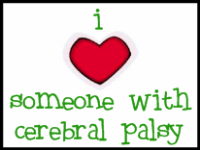Welcome to Friday Facts! here on the Knowledge Safari blog. Each week we aim to shine the spotlight on various segments of special needs in order to raise awareness and provide information. Today we focus on Noonan Syndrome.
Do you have a suggestion for our Friday Facts? Email us at blog@knowledgesafari.com and let us know!
The following is taken from NORD.
Noonan syndrome is a common genetic disorder that is typically evident at birth (congenital).
The disorder is characterized by a wide spectrum of symptoms and physical features that vary greatly in range and severity. In many affected individuals, associated abnormalities include a distinctive facial appearance; a broad or webbed neck; a low posterior hairline; a typical chest deformity and short stature. Characteristic abnormalities of the head and facial (craniofacial) area may include widely set eyes (ocular hypertelorism); skin folds that may cover the eyes' inner corners (epicanthal folds); drooping of the upper eyelids (ptosis); a small jaw (micrognathia); a depressed nasal root; a short nose with broad base; and low-set, posteriorly rotated ears (pinnae). Distinctive skeletal malformations are also typically present, such as abnormalities of the breastbone (sternum), curvature of the spine (kyphosis and/or scoliosis), and outward deviation of the elbows (cubitus valgus).
Many infants with Noonan syndrome also have heart (cardiac) defects, such as obstruction of proper blood flow from the lower right chamber of the heart to the lungs (pulmonary valvular stenosis). Additional abnormalities may include malformations of certain blood and lymph vessels, blood clotting and platelet deficiencies, mild mental retardation, failure of the testes to descend into the scrotum (cryptorchidism) by the first year of life in affected males, and/or other symptoms and findings. Noonan syndrome is an autosomal dominant genetic disorder caused by abnormalities (mutations) in four different genes: PTPN11, KRAS, SOS1 and RAF1
For more information contact:
American Heart Association
7272 Greenville AvenueDallas TX 75231-4596Phone #: 214-373-6300800 #: 800-242-8721e-mail: Review.personal.info@heart.orgHome page: http://www.americanheart.org
Vanilla Lemonade
1 day ago








.JPG)















No comments:
Post a Comment